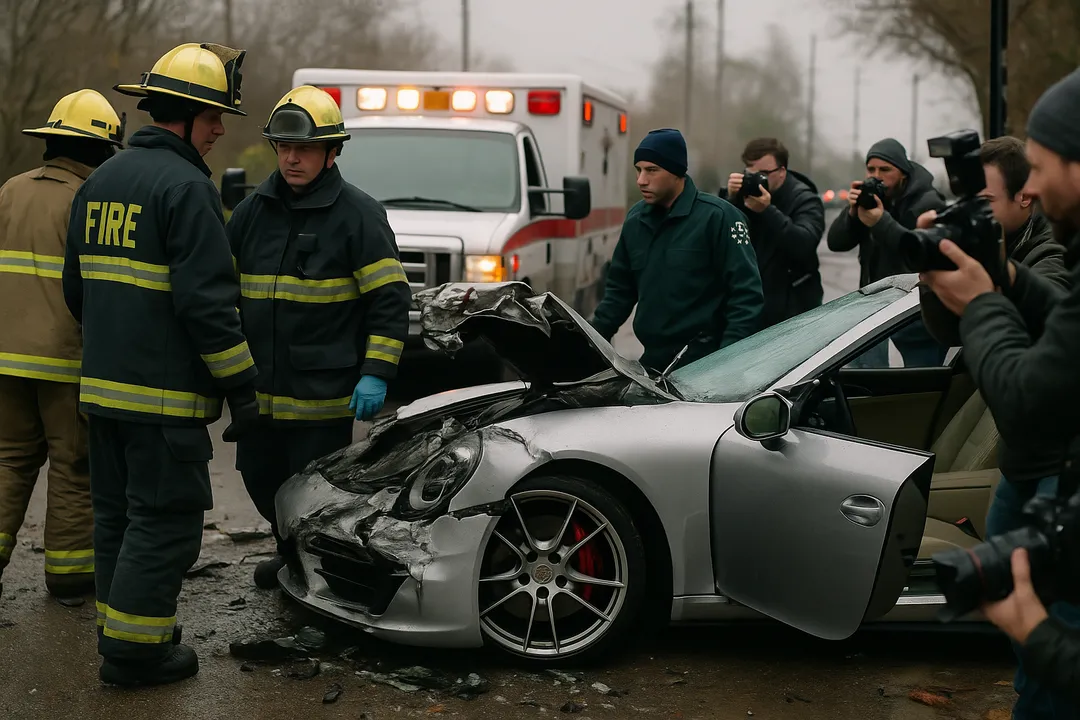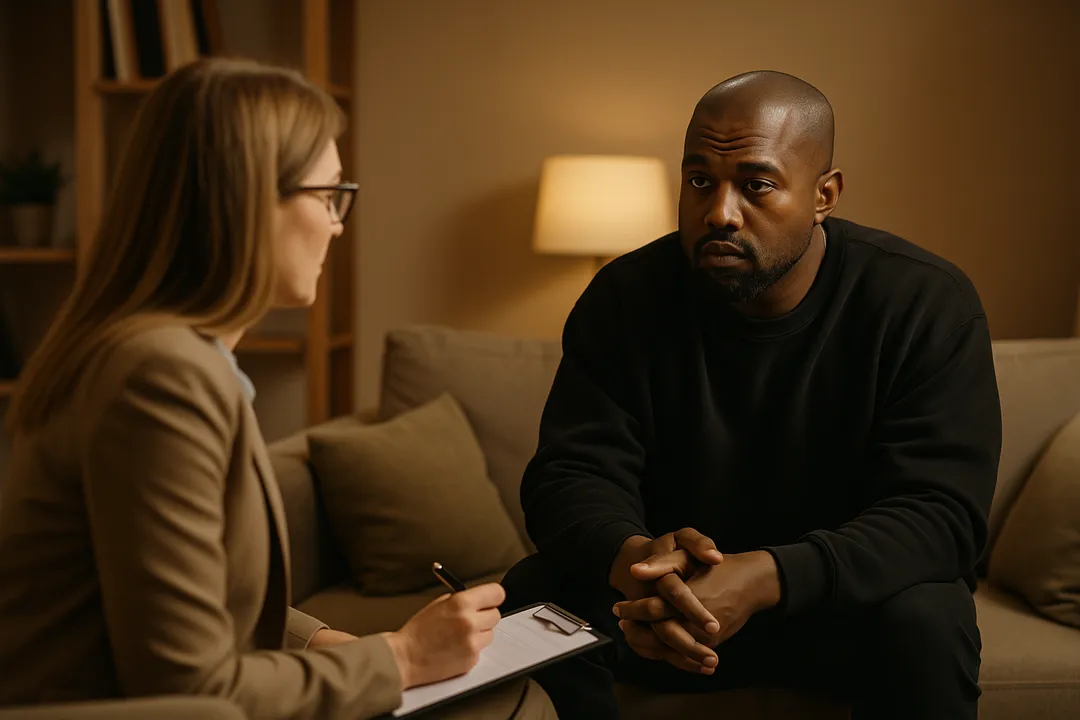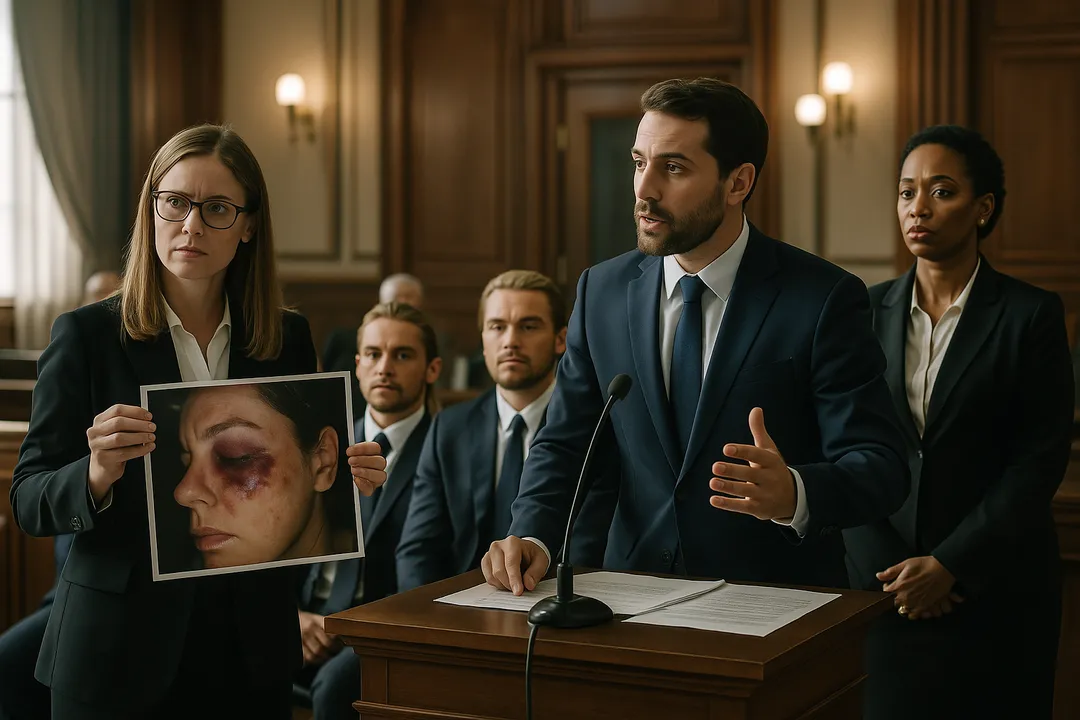The rock and roll world was stunned in December 2024 when Mötley Crüe frontman Vince Neil revealed that he had suffered a stroke the day after Christmas 2023, leaving his entire left side paralyzed and forcing him to learn to walk again. The 63-year-old vocalist’s candid disclosure about his health crisis, which necessitated the postponement of the band’s highly anticipated Las Vegas residency, has brought renewed attention to the unique challenges facing aging rock stars and the complex legal and financial implications of serious health emergencies in the entertainment industry.
Neil’s revelation that he went to sleep feeling fine on Christmas Day but woke up the next morning unable to get out of bed illustrates the sudden and devastating nature of stroke incidents. His subsequent months-long recovery process, during which he had to relearn basic motor functions, highlights the serious medical and professional challenges that can derail even the most established entertainment careers.
The incident raises critical questions about health screening for aging performers, the insurance implications of sudden health crises, and the legal responsibilities of entertainment companies when key performers suffer serious medical emergencies that affect contracted performances and business obligations.
The Medical Reality of Stroke in Aging Performers
Vince Neil’s stroke represents a stark reminder of the health risks facing aging rock stars who have spent decades in a profession known for its physical demands and lifestyle challenges. Stroke, which occurs when blood flow to part of the brain is interrupted, can have devastating and immediate effects on motor function, speech, and cognitive abilities.
Neil’s description of waking up unable to get out of bed and subsequently losing function on his entire left side is consistent with a significant stroke affecting the motor cortex of the brain. The fact that he required months of rehabilitation to relearn walking demonstrates the severity of his condition and the extensive recovery process required for stroke survivors.
For performers like Neil, whose careers depend on physical presence, vocal performance, and stage mobility, stroke recovery presents unique challenges that extend far beyond typical rehabilitation goals. The ability to perform energetic stage shows, maintain vocal strength, and connect with audiences requires a level of physical and cognitive function that may be permanently altered by stroke.
The entertainment industry has seen numerous cases of aging performers dealing with serious health issues, but stroke presents particular challenges due to its unpredictable nature and potentially permanent effects. Unlike injuries that heal over time, stroke damage may result in lasting disabilities that require ongoing accommodation and management.
Legal Implications of Health-Related Performance Cancellations
The postponement of Mötley Crüe’s Las Vegas residency due to Neil’s stroke raises significant legal questions about force majeure clauses, performer disability, and contractual obligations in the entertainment industry. As we explored in our analysis of celebrity lawsuit trends in injury cases, health-related performance cancellations involve complex legal considerations that affect multiple parties.
Entertainment contracts typically include provisions for health-related cancellations, but the specific terms can vary significantly depending on the nature of the agreement and the parties involved. For a Las Vegas residency, which represents a substantial financial commitment from venues, promoters, and performers, the legal implications of health-related postponements are particularly complex.
The question of whether Neil’s stroke constitutes a force majeure event—an unforeseeable circumstance that prevents contract fulfillment—is central to determining liability for cancellation costs, refunds, and rescheduling expenses. Courts generally recognize serious medical emergencies as legitimate force majeure events, but the specific contractual language and circumstances of each case determine the ultimate legal outcome.
Additionally, the Americans with Disabilities Act and similar legislation may require reasonable accommodations for performers dealing with stroke-related disabilities. This could include modified performance requirements, accessibility improvements, or other adjustments that allow performers to continue their careers while managing their health conditions.

Insurance Considerations for Aging Rock Stars
The insurance implications of Neil’s stroke highlight the unique challenges facing aging performers in obtaining and maintaining comprehensive coverage for health-related career disruptions. As detailed in our analysis of celebrity body part insurance, entertainment insurance becomes increasingly complex and expensive as performers age and face higher health risks.
For established acts like Mötley Crüe, tour cancellation insurance is essential protection against the financial losses associated with health-related performance cancellations. However, these policies often have age-related exclusions or limitations that can affect coverage for older performers.
The financial implications of Neil’s stroke extend beyond immediate medical costs to include lost revenue from cancelled performances, costs associated with rescheduling tours, and potential long-term impacts on the band’s earning capacity. Tour cancellation insurance may cover some of these costs, but policy terms and exclusions can significantly affect the level of protection available.
Disability insurance for performers like Neil faces unique challenges in defining what constitutes a disability for someone whose career depends on specific physical and vocal abilities. A stroke that affects mobility or speech could be career-ending for a performer, even if it doesn’t prevent them from performing other types of work.
The Business Impact of Celebrity Health Crises
The postponement of Mötley Crüe’s Las Vegas residency due to Neil’s stroke demonstrates the far-reaching business implications of celebrity health crises. Las Vegas residencies represent significant financial investments for venues, with complex arrangements involving ticket sales, marketing campaigns, and venue scheduling that can be difficult and expensive to modify.
The ripple effects of health-related cancellations extend to multiple stakeholders, including venue operators, ticket holders, hotel and travel companies, and local businesses that depend on concert-related tourism. The legal and financial responsibilities for these impacts depend on contractual arrangements and insurance coverage, but they represent substantial costs that must be allocated among various parties.
For aging rock bands like Mötley Crüe, health-related performance issues also raise questions about long-term career sustainability and the need for succession planning. The band’s ability to continue touring and performing may depend not just on Neil’s recovery but also on their ability to adapt their performances and business model to accommodate health-related limitations.
Recovery Challenges for High-Profile Performers
Neil’s recovery process, which involved relearning basic motor functions like walking, illustrates the unique challenges facing high-profile performers dealing with serious health issues. The pressure to return to performing as quickly as possible must be balanced against medical advice about proper recovery and rehabilitation.
The public nature of celebrity health crises adds additional pressure to the recovery process. Fans, media, and business partners all have interests in the performer’s recovery timeline, which can create pressure to return to work before full recovery is achieved.
For stroke survivors, the recovery process is often lengthy and unpredictable, with improvements continuing for months or even years after the initial incident. The entertainment industry’s fast-paced nature and financial pressures can conflict with the patient, long-term approach that medical professionals typically recommend for stroke recovery.
Neil’s decision to be transparent about his health challenges represents a growing trend among celebrities to openly discuss their medical issues. This transparency can help reduce stigma around health problems and provide inspiration for other stroke survivors, but it also creates additional legal and business considerations.
Industry Response and Accommodation
The entertainment industry’s response to Neil’s stroke and the subsequent tour postponements provides insight into how the industry handles serious health crises affecting major performers. The decision to postpone rather than cancel the Las Vegas residency suggests that venues and promoters are willing to accommodate health-related delays when dealing with established acts.
This accommodation reflects both the financial value of successful acts like Mötley Crüe and the industry’s recognition that health issues are an inevitable part of working with aging performers. The legal framework for these accommodations continues to evolve as the entertainment industry grapples with an aging performer base and increasing awareness of disability rights.
The industry’s response also highlights the importance of having contingency plans for health-related disruptions. This includes not just insurance coverage but also operational plans for managing cancellations, rescheduling performances, and maintaining fan and business relationships during health crises.
Medical Advances and Celebrity Healthcare
Neil’s recovery process benefits from advances in stroke treatment and rehabilitation that have improved outcomes for stroke survivors in recent years. Celebrity patients often have access to cutting-edge treatments and specialized care that may not be available to all stroke survivors, but they also face unique pressures and challenges in their recovery process.
The intersection of celebrity status and serious medical conditions creates both opportunities and challenges for healthcare providers. While celebrities may have access to the best medical care, their public profiles and professional pressures can complicate treatment and recovery planning.
The entertainment industry has begun to recognize the importance of preventive healthcare and regular medical screening for aging performers. This includes not just physical health monitoring but also mental health support and lifestyle counseling that can help reduce the risk of serious health incidents.

Legal Precedents and Future Implications
Neil’s stroke and its impact on Mötley Crüe’s touring schedule will likely influence how similar situations are handled in the future. The legal precedents established in cases involving health-related performance cancellations help define the rights and responsibilities of performers, venues, promoters, and other stakeholders.
The entertainment industry’s approach to aging performers and health-related accommodations continues to evolve, with increasing recognition that successful career management for older performers requires comprehensive health planning and legal protections.
Future contracts for aging performers may include more detailed provisions for health-related modifications and accommodations, reflecting the industry’s growing understanding of the challenges facing older entertainers.
The Role of Band Dynamics in Health Crises
Neil’s stroke also highlights the unique challenges facing band members when one member experiences a serious health crisis. Unlike solo performers, bands must navigate the complex dynamics of group decision-making, shared financial interests, and collective career planning when health issues arise.
The other members of Mötley Crüe—Tommy Lee, Nikki Sixx, and Mick Mars—must balance their own career interests with support for Neil’s recovery and the band’s collective future. This includes decisions about tour scheduling, performance modifications, and long-term career planning that affect all band members.
The legal implications of band member health crises can be particularly complex, involving partnership agreements, shared contracts, and collective bargaining considerations that don’t apply to solo performers.
Long-term Career Implications
The long-term implications of Neil’s stroke for his career and Mötley Crüe’s future remain to be seen. While his recovery has progressed to the point where the band has rescheduled their Las Vegas residency, questions remain about his ability to maintain the demanding performance schedule that has defined his career.
Stroke survivors often experience ongoing challenges with fatigue, coordination, and other issues that may not be immediately apparent but can affect long-term performance capabilities. The entertainment industry’s accommodation of these challenges will be crucial for Neil’s continued career success.
The band’s ability to adapt their performances and touring schedule to accommodate Neil’s health needs while maintaining their artistic and commercial success will serve as a model for other aging rock acts facing similar challenges.
Conclusion
Vince Neil’s stroke and subsequent recovery represent more than just a personal health crisis—they illustrate the complex intersection of aging, health, and career sustainability that defines the modern entertainment industry. His candid disclosure about his health challenges and the impact on Mötley Crüe’s touring schedule provides valuable insights into how the industry handles serious medical emergencies affecting major performers.
The legal, financial, and medical implications of Neil’s stroke extend far beyond his personal recovery to encompass questions about industry standards, insurance coverage, and accommodation requirements that will influence how similar situations are handled in the future. His experience demonstrates both the vulnerabilities and the resilience that characterize aging performers in the entertainment industry.
As Neil continues his recovery and Mötley Crüe prepares to resume their Las Vegas residency, their experience serves as a case study in how established acts can navigate serious health challenges while maintaining their careers and meeting their professional obligations. The balance between health requirements and professional demands remains delicate, but Neil’s progress suggests that with proper medical care, legal planning, and industry accommodation, even serious health setbacks don’t necessarily mean the end of successful entertainment careers.
For other aging performers, entertainment industry professionals, and legal experts, Neil’s experience provides valuable lessons about the importance of comprehensive health planning, appropriate insurance coverage, and flexible contractual arrangements that can accommodate the realities of aging in a demanding profession.

















